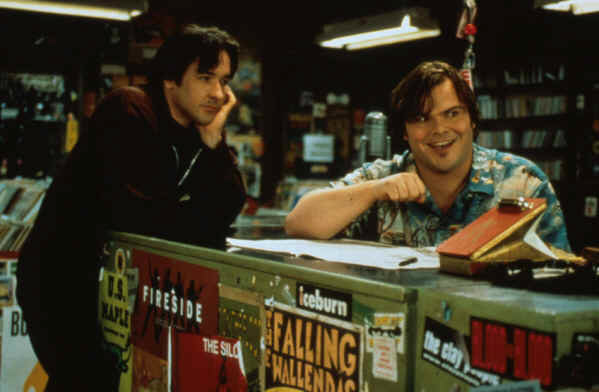 I really liked the two previous Zulawski films I'd seen; 'The Third Part of Night' (1971) and 'Possession' (1981). Both are incredibly radical and interesting films with a great deal of psychological depth and just that ounce of lunacy about them. But this can't prepare one for watching Zulawski's most ambitious film; 'On The Silver Globe', which you watch puzzled and dumbfounded for much of the time, but always hooked. The film famously had a problematic production, starting in the mid 1970s, then filming was halted by the Polish Ministry of Culture. The film was only completed some ten years after. Originally 80% or so complete, Zulawski was unable to use the same sets, costumes or actors, so the viewer has to forgive the odd continuity issue. Where gaps in the narrative exist, Zulawski narrates the lost 'action', interspersing it with what almost seems to be contemporary footage of normal life.
I really liked the two previous Zulawski films I'd seen; 'The Third Part of Night' (1971) and 'Possession' (1981). Both are incredibly radical and interesting films with a great deal of psychological depth and just that ounce of lunacy about them. But this can't prepare one for watching Zulawski's most ambitious film; 'On The Silver Globe', which you watch puzzled and dumbfounded for much of the time, but always hooked. The film famously had a problematic production, starting in the mid 1970s, then filming was halted by the Polish Ministry of Culture. The film was only completed some ten years after. Originally 80% or so complete, Zulawski was unable to use the same sets, costumes or actors, so the viewer has to forgive the odd continuity issue. Where gaps in the narrative exist, Zulawski narrates the lost 'action', interspersing it with what almost seems to be contemporary footage of normal life.Based on a series of science fiction novels by Zulawski's grandfather, 'On The Silver Globe' starts with a group of astronauts leaving Earth for freedom and to create a new civilisation. They land on what appears to be the dark side of the Moon. The group then procreate (though there's only one female, so let's overlook the iffy gender politics which reduces her to baby making machine then) before dying. The generations of children they have spawned become primitive tribes, placing great importance on strange ceremonies and rituals, worshipping fire, turning to violence even. Their 'religion' places these astronauts as Gods; the sole survivor is revered, and there is a prophecy which suggests this Old Man will one day be reincarnated, which they believe is the case when another astronaut arrives alone after the Old Man has died. This 'reincarnated' figure is supposed to free them from the winged monsters who have enslaved them (yeah, I know), before meeting his own destiny.
So far, so nuts. Even by Zulawski's standards, this is a total "what the hell?" experience. The technical dimension though is flawless, as much as the film exists as planned. There's the typical mobile camerawork for the director; swooping from great heights, most notably when focusing on a number of men being sacrificed (?), impaled by long wooden poles up their anuses dozens of feet in the air. There's the muted colours too. The whole film seems to be shot in a grey-blue palette, giving a washed out effect. There's the elaborate constume design and make up as well. Given the hardships the film faced, it's to Zulawski's credit that he's managed to looks so technically and visually accomplished.
Nowadays, science fiction relies on an emphasis on special effects, but not here. 'On The Silver Globe' is all about psychological depth and religious parallels. It's a shame we never got to see the version that Zulawski intended. It does feel as if you're watching an uncompleted film. It's certainly disjointed and inconsistent, and even taking into account all the strangeness of proceedings, it's never off-putting. 'On The Silver Globe' needs to be seen to be believed; it has much in common with Jodorowsky at his most demented, I'd say. It's never short of ideas but given the shape it's in, might be reduced to cult viewing or considered a film oddity. 3.5/5







